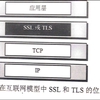Self-supervised learning (SSL) for automated speech recognition in terms of its emotional content, can be heavily degraded by the presence noise, affecting the efficiency of modeling the intricate temporal and spectral informative structures of speech. Recently, SSL on large speech datasets, as well as new audio-specific SSL proxy tasks, such as, temporal and frequency masking, have emerged, yielding superior performance compared to classic approaches drawn from the image augmentation domain. Our proposed contribution builds upon this successful paradigm by introducing CochCeps-Augment, a novel bio-inspired masking augmentation task for self-supervised contrastive learning of speech representations. Specifically, we utilize the newly introduced bio-inspired cochlear cepstrogram (CCGRAM) to derive noise robust representations of input speech, that are then further refined through a self-supervised learning scheme. The latter employs SimCLR to generate contrastive views of a CCGRAM through masking of its angle and quefrency dimensions. Our experimental approach and validations on the emotion recognition K-EmoCon benchmark dataset, for the first time via a speaker-independent approach, features unsupervised pre-training, linear probing and fine-tuning. Our results potentiate CochCeps-Augment to serve as a standard tool in speech emotion recognition analysis, showing the added value of incorporating bio-inspired masking as an informative augmentation task for self-supervision. Our code for implementing CochCeps-Augment will be made available at: https://github.com/GiannisZgs/CochCepsAugment.
翻译:暂无翻译



